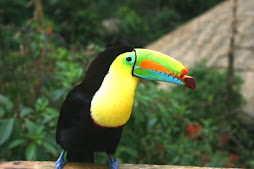












Hola mi familia y amigos de MSPP,
Our 17 day immersion experience in Guatemala is defiantly worth writing home about :) Thank you to Michelle Contreras, Stephanie Guila, and the clinicians and staff at Boston Clinical Consulting en Guatemala for hosting such a wonderful, memorable, and personally/ clinically enriching experience. In writing this blog I hope to share some highlights from our work, our play, as well as the excitement we all feel about the catalyzing of this important and special professional international exchange program between MSPP and the Boston Clinical Consulting group in Guatemala City.
During our 17 day immersion we had the opportunity to get to know personally and professionally the group of psychologists and staff working at Boston Clinical Consulting (“Boston”) in Guatemala City. We were welcomed with open arms. At the clinic we attended Spanish lessons as well as psycho-educational workshops presented by the clinicians, topics included: A workshop on grieving for bereaved parents/ families and Sexual Disorders (2 part). These types of psycho-educational workshops are offered weekly to other professionals and to the public in an effort to provide information and services; to de-stigmatize mental health services in the area.
At the end of the first week we visited and did one short play therapy intervention with 25-50 children at an orphanage in Chimaltenango. This orphanage is named Nuestros Pequenos Hermanos and houses over 350 orphans. It is quite a sight to behold. It is a huge pretty well self sustained campus with metal, wood, sewing, cooking/ kitchen workshops, a school, living quarters for the children as well as staff/ volunteers, football field, basketball courts, gardens, green houses, animal shed and more, all back dropped against a surreal mountain and volcano scenery. I remember walking across the field my first afternoon side by side a small boy of 9 years old. I had gone to get him from class to go to his “anger management” group that was being run by a visiting Japanese psychologist. As we crossed the field together, he asked, “So do you like my country?” I said yes, I do. It is very beautiful. He then looked at me, smiled and said, “I know!! just look at the mountains over there!”
In addition to the mountains we were also welcomed by the children to snap shots of their lives and some stories of early abandonment and resilience. We used a “paracaida” (for falling)/ parachute in our intervention, and consulted on a case with the only local psychologist for all 350+ children on how to help better support a 13 year old girl who was reported to be having significant behavioral difficulties that included stealing eggs from the chicken pen and going to the green house to make omelets for herself and a couple of other friends all of whom had recently sneaked out of the residence late one night. There is much clinical work that can be done here, however, more appropriate it seems for groups that could consider staying a considerably longer period of time then we had available on this trip.
Over the weekend we traveled to Antigua. A special and scared place. A place to relax, chat with the locals, and dance.
In the second week we continued with our Spanish classes at the clinic, visited a second orphanage, as well as made several day visits that included going to the National Psychiatric Hospital, visiting an acupuncturist/ local healer, Train museum, and the National Political Archives. At the second orphanage, El Hosicio San Jose (an place for children who are HIV positive) we again did a short play therapy intervention using drawings and a parachute. This was very successful intervention and left us all with active thoughts about how and in what form MSPP could continue to be a presence in these very special children’s lives. I look forward to sharing more on my cross cultural clinical reflections in the future at MSPP :)
We ended the trip by visiting one of the largest Mayan ruins in the world located in the Tikal National Park. This was my first time seeing a ruin and I experienced standing in awe of humanity. The jungle is certainly an energizing place. I fell in love with Guatemala.
Gracias a Zackarias, Christina, Juan y Michelle por un bien viaje!
Gracias to the MSPP community y Boston Clinical Consulting for this first opportunity to be part of such a positive and important international professional exchange.
Entonces. Calidad!!!
Simpre la paz,
Jeanine










